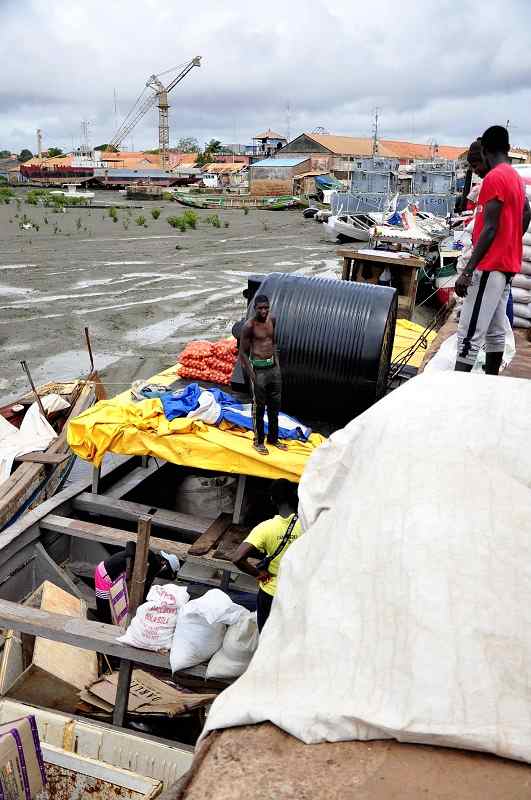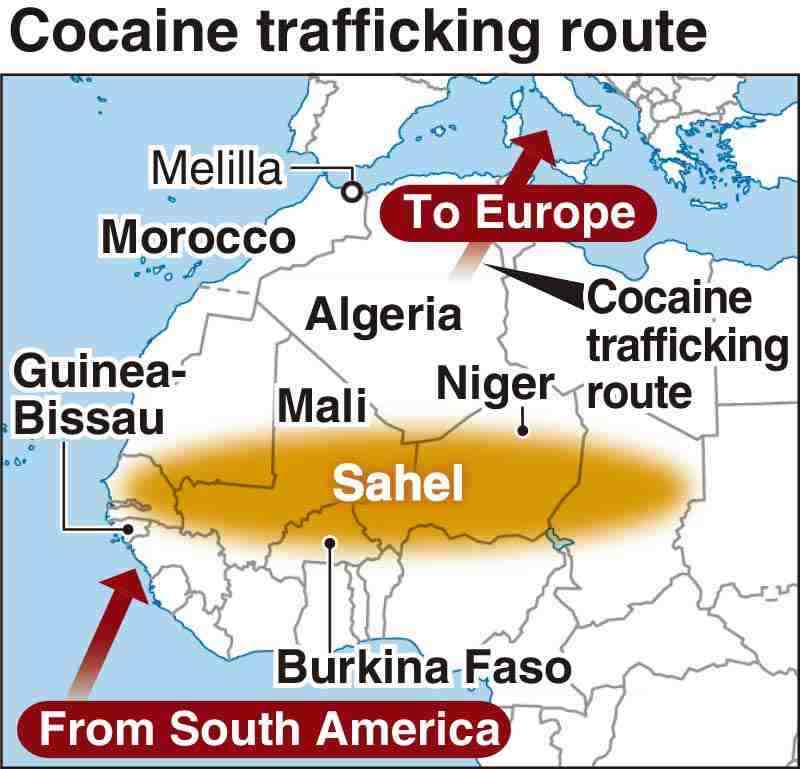Situation in Sahel region a wake-up call regarding population explosion

A small wooden ship that traveled to Bissau from a remote island in the Atlantic is seen on July 19. Drug trafficking is said to often take place on remote islands.
1:00 JST, September 3, 2022
BISSAU — Africa’s population is expected to keep growing through the second half of this century, nearly doubling by 2050 from its current level. If this population explosion is not adequately handled by the governments and markets concerned, it may exacerbate problems such as terrorism and crime.

Vicious cycle of poverty, turmoil
Guinea-Bissau is a country located in West Africa on the Atlantic. In contrast to the capital’s bright cityscape highlighted with red roof tiles, a remnant from the Portuguese colonial era, the nation has been called a “narco-state” shrouded in darkness.
In February, a group of masked men firing guns broke into a government building in the middle of a parliament meeting. Security guards were shot, followed by others falling one after another.
“I prepared myself to be killed. I saw government workers jumping out the windows and fled,” said a female reporter from a local radio station who happened to be at the scene.
The shootout lasted more than five hours, killing a total of 11 people. President Umaro Sissoco Embalo escaped and said that night that the attackers in the attempted coup were linked to drug trafficking in the country.
Political unrest has continued since a 1998 civil war in Guinea-Bissau, which is believed to be a transit point for cocaine shipped from South America to Europe. Colombia’s drug cartels have influence over Guinea-Bissau’s politicians, military and police, leaving the country’s governance system in an extremely precarious state.
The Sahel region, which includes Mali and Burkina Faso to the east of Guinea-Bissau, is considered one of the most unsafe places in the world. According to United Nations estimates, 2.6 million people have fled genocide in this region.
Islamic militants based in the Sahel are believed to be working as couriers for Guinea-Bissau’s drug cartels and are funded by them in return.
Many local residents say the militants are just a criminal gang aiming to make money. Unlike the Islamic State in the Middle East, which recruits fighters from around the world who are sympathetic to its extremism, many of the members of Sahel’s militant groups are young people from certain ethnic groups seeking to escape poverty. They also lack education.
The Sahel has seen some of the fastest population growth in Africa. The fragile governance system has caused public safety to deteriorate and prompted economic stagnation, leading to a vicious cycle of further turmoil.
A former senior government official in Burkina Faso said it would be difficult to overcome this crisis without eliminating corruption and nepotism.
Fleeing to Europe
A wave of people fleeing violence and poverty has come to Europe.
In late June, 23 people were killed as more than 2,000 migrants trying to cross the border clashed with Moroccan security forces in the Spanish enclave of Melilla in Morocco facing the Mediterranean.
The Spanish newspaper El Pais ran a front-page photo of Africans crowding the border fence, from which one can see how Europe views immigration as a threat.
Will the demographic explosion in Africa lead to a situation that shakes the international community? Avoiding a crisis will depend on better governance and drastic measures to tackle poverty there.



